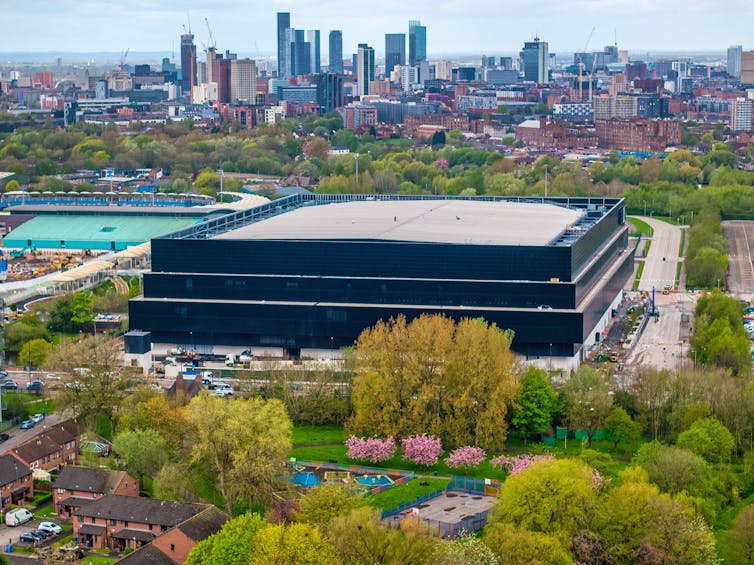The opening of any new business can be a nerve-wracking affair. Will everything work? Will things go wrong? Will the whole enterprise fall flat on its face?
For the owners of a new concert venue in Manchester, things went very wrong. The £365 million Co-op Live arena was supposed to launch on April 23 with a performance by comedian Peter Kay. But after technical issues emerged, it had to be cancelled at the last minute.
Then the show was cancelled again. Kay, and thousands of ticket holders, were not amused. After that, appearances by The Black Keys, Take That, A Boogie wit da Hoodie and Keane were all either postponed or moved to another venue. Eventually, Co-op Live opened with a concert by local band Elbow on May 14.
The delays were both embarrassing and expensive. Costs from reputational damage and business interruption are likely to be significant. But how harmful will they be to the venue’s future prospects?
The answer probably lies in the basic economics of supply and demand. If, over the coming months and years, Co-op Live can supply enough acts that a large number of fans are happy to pay to watch, it will be sticking to a tried-and-tested business model.
And the arena will also benefit from the economies of scale. While increasing costs have led to an alarming number of independent venues closing, large venues can sell more tickets, rent their space out to high-profile events, and sell commercial and naming rights. Co-op Live reportedly has the largest maximum capacity (23,500) of any indoor arena in Europe.
It also has two wealthy and experienced owners – not to mention Harry Styles as an investor. One is Oak View Group, a venue development and management company, and the other is City Group, owners of Manchester City football club (and many others).
The arena project has also managed to secure a well-known brand: the Co-op. The sale of naming rights tends to bring in much-needed revenue to a project, particularly at the start – where it is useful for both sides.
The first naming rights partner to any project gets benefits as people get used to calling the venue by the brand name. Even if that brand pulls out of the arrangement at a later date, the benefits of name recognition remain. Other well-known brands associated with venues include Brighton & Hove Albion’s Amex Stadium and the O2 concert venue in London.
However, research shows that naming rights are only valuable if the sponsors get their timing right. Newcastle’s St James’ Park was not popularly referred to as the Sports Direct Arena when it was renamed for a short period.
Facing the music
Big building projects always come with risks, particularly in recent years in the UK.
The cost of living has increased – and with it, the price of goods, services and wages. This means many big projects, including the now (mostly) cancelled HS2 railway line, have suffered from soaring costs.

But the investors behind Co-op Live also have reason to feel optimistic. One particular venue comes to mind which demonstrates how teething problems can soon be replaced with profit and popularity.
When the Millennium Dome opened in south-east London on December 31 1999, it had been plagued with controversy. Almost a quarter of a century later, after redevelopment and the sale of its naming rights to telecoms group O2 in 2005, the project is now synonymous with success, boasting record-breaking ticket sales and a number of industry awards.
Of course, the people running Co-op Live need to ensure there are no further blips in the immediate road ahead. Hosting successful events to large crowds will be essential to ensure that people focus on the positives of the venue, rather than the issues that plagued it at the start.
If this happens, everyone wins. People get to watch great live events, artists get to perform in a state-of-the-art venue, and investors can start to claw back some of their financial outlay. The owners will certainly hope their initial failures will swiftly be forgotten, and that the many shows planned for the future will go on and on.

